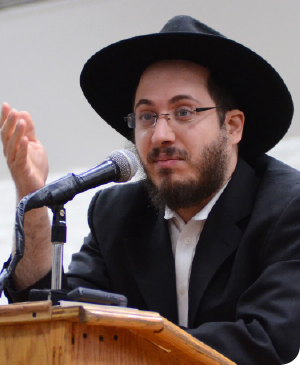Dear Reader sh’yichyeh,
 This week’s Torah portion begins with the Mitzva of the “Machatzis Hashekel - half Shekel” that each Jewish person donated to the Beis HaMikdash.
This week’s Torah portion begins with the Mitzva of the “Machatzis Hashekel - half Shekel” that each Jewish person donated to the Beis HaMikdash.
In the words of the Torah (Shmos 31:11): The Lord spoke to Moshe, saying: When you take the sum of the children of Israel according to their numbers, let each one give to the Lord an atonement for his soul when they are counted; then there will be no plague among them when they are counted. This they shall give, everyone who goes through the counting: half a shekel according to the holy shekel. Twenty gera equal one shekel; half of [such] a shekel shall be an offering to the Lord. The rich shall give no more, and the poor shall give no less than half a shekel, with which to give the offering to the Lord, to atone for your souls.”
In the Sicha of VaYakhel 5752 (the last sicha that we merited to hear - so far - from the Rebbe (and to be discussed at length in next week’s column B’ezras Hashem)) the Rebbe discusses these verses at length and asks a few pointed questions:
In general, when it comes to doing Mitzvos, we demand that they be done in the most complete way possible. [A prime example of this rule is that all animals that were brought as sacrificial-offerings had to be blemish-free.] So then why are we instructed to give only a half shekel to Beis HaMikdash? Why not a complete amount, like one shekel?
Even if for whatever reason we do need to give only a half a shekel and not more, why does the Torah preface the mitzvah with the currency information that “Twenty gera equal one shekel” and not simply tell us to give 10 gera?
Why does the Torah employ elaborate prose, “The rich shall give no more, and the poor shall give no less,” when it could have simply written that “everyone must give this amount, no more or less”?
The Rebbe answers by explaining (Toras Menachem 5752 vol. 2 pg. 362) that the mitzva of Machatzis Hashekel teaches us an amazing lesson in Jewish unity (Hakhel). A Jew, even if he feels that he is complete in his own service of Hashem (“rich”), must realize that he is only a “half;” his “completion” is brought about only when he connects with his fellow Jew. This comes about when a Jew realizes that he is intimately connected and one with Hashem.
Living this way, by realizing our oneness with Hashem and connecting to every Jew, is the way we prepare for the lifestyle of Moshiach. In the words of the Rebbe (Matos-Massei 5751): “The connection between Ahavas Yisroel and the future Redemption can be emphasized yet again, not only because the negation of exile comes through the negation of the cause of exile (which comes through the opposite of Ahavas Yisroel). For in our situation, after the completion of our actions and Divine service throughout the time of exile, and after the completion of all forty two journeys in the ‘wilderness of the nations,’ [when] we find ourselves already ‘by the Jordan near Jericho’ (the stage of Moshiach who ‘smells and judges’), on the threshold of Redemption, certainly the reason for exile has already been corrected. Therefore, the emphasis on Ahavas Yisroel anticipates the beginning of the true and complete Redemption, which is connected with the point of unity above any division. This emphasis on the unity of the Jewish people is a result of the aspect of yechida (the fifth level [of the soul]) that is in all Jews equally. For this is a spark of the soul of Moshiach, the general yechida.”
Rabbi Avtzon is the Rosh Yeshiva of Yeshivas Lubavitch Cincinnati and a well sought after speaker and lecturer. Recordings of his in-depth shiurim on Inyanei Geula u’Moshiach can be accessed at http://www.ylcrecording.com.